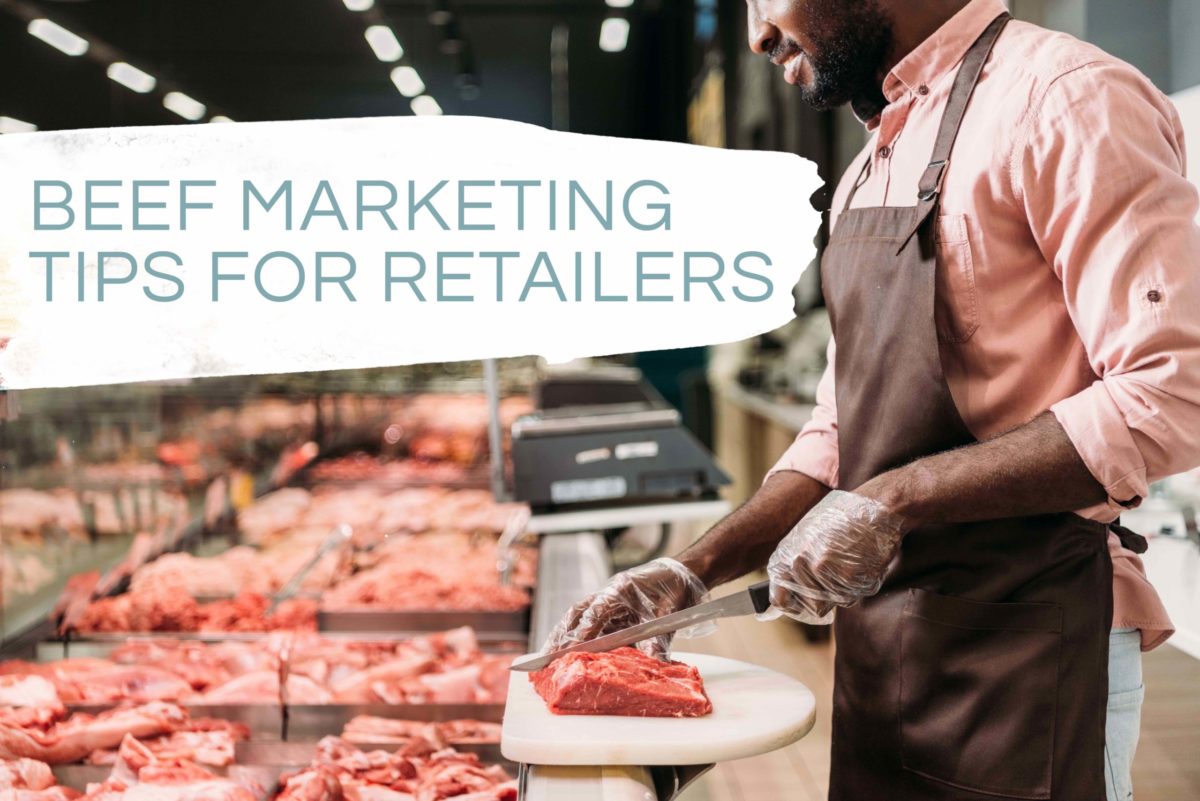
How to Boost Your Specialty Meat Sales: Marketing Natural Angus, Wagyu, and Prime Beef
Aug 26, 2021
The demand for specialty meats has been on the rise for several years due to growing consumer interest in clean eating, animal welfare, and environmentally friendly practices. In its 2021 Power of Meat report, the FMI Foundation for Meat and Poultry Research and Education shared that 5 out of 10 shoppers seek antibiotic-free products, and 4 in 10 shoppers seek no added hormones and Natural products. Further, claims-based meat sales were up 1.8% on average compared to just 0.8% of conventional meat sales. For beef, that meant a 3.9% increase in claims-based sales, compared to a 1.6% increase in conventional.
Published on the pre-pandemic heels of 2019, the report showed steady growth in the demand for specialty meats. But, the 2021 Power of Meat report shows that 2020 brought an explosion of claims-based meat sales (up 18.1%) as consumers prioritized healthy foods in addition to existing values like animal welfare and eco-friendliness. According to the report, while some specialty meat sales can be attributed to availability fluctuations during the pandemic, 28% of shoppers specifically buy meat with label claims.

It’s clear that offering specialty meats helps meat department sales even in challenging times. If you’re a retailer carrying specialty meat products, here are a few ways you can maximize Natural beef sales at your store.
1. Retailers Should Educate Consumers on the Differences Between Natural Angus, Wagyu Beef, and Other Labels
Carrying specialty beef shows you care about your shoppers’ values and interests, and it creates an opportunity to reach your customers in new ways. Understanding and communicating the various attributes of the products in your meat case is the first step to connecting with that audience, as purchasers of premium beef value transparency and want to make informed decisions.
55% of shoppers believe transparency of how and where the animal was raised and processed is important, whether from the brand or the grocery store.
Consumers have more premium beef products to choose from than ever before, including Natural Angus and American Wagyu beef, as well as options in USDA Prime and Choice. Each has a unique set of attributes that appeal to various, usually affluent, consumers, making consumer education even more important.

Sharing the following information with your shoppers helps clarify the labels they encounter at the meat case and helps them choose the product that best aligns with their values and motivations.
- What is Natural Beef?
“Natural beef” means beef that is minimally processed with no artificial ingredients. Some producers like Aspen Ridge® Natural Angus Beef exceed the USDA’s definition by raising beef with no antibiotics or added growth hormones.The terms “Angus” and “Wagyu” beef both refer to breeds of cattle. Angus cattle are the most common cattle breed in the United States and are known for producing beef with exceptional marbling. Beef produced from Angus cattle often receives a designation of USDA Prime or Choice. - What is Wagyu Beef?
Wagyu beef is widely seen as a delicacy due to its intense marbling and Japanese bloodlines. In the United States, Wagyu cattle are crossbred with Angus, combining Wagyu genetics with the best American cattle breed. Most American Wagyu beef also carries the “Natural” label as it’s raised without added growth hormones. - USDA Prime and Choice Beef
USDA beef quality grades may seem straightforward to the workers behind the meat counter, but it is always helpful to educate your consumer on what the various grades mean and why they’re significant. Sharing information about the USDA beef quality grades on social media and using print infographics help guide your customers’ purchase decisions. Download a graphic of the USDA beef quality grades.
Make sure your meat department is educated on each of the products your store offers, so your department can explain (and sell) the product attributes and backstory to your consumers.
2. Offer a Variety of Natural Angus Beef Cuts
Before the COVID-19 pandemic, consumers hesitated to try new meat cuts due to lack of confidence in preparing them. However, the pandemic pushed many shoppers to try new cuts, recipes, and ways to prepare meat. According to the Power of Meat 2021 report, “more than three-quarters of shoppers changed something about their meat purchases during the pandemic.” 4 in 10 shoppers bought different cuts of meat than usual. In the study, “shoppers stress[ed] the importance of favorable prices and promotions, along with offering variety in pack sizes, species, cuts, and claims.”
Providing classic cuts with claims labels such as Natural Angus Ribeye, New York Strip, and Top Sirloin in addition to Filet Mignon, Tri-Tip, and Top Round Steak is a way to capitalize on this trend and diversify your meat case. Arm your customers with tips for preparing common beef cuts and recipes to help build confidence and boost sales across your store.
3. Provide Side Dish and Pairing Ideas for Natural Beef
Consumers spent more time than usual cooking at home during the COVID-19 pandemic, and 7 out of 10 say they will continue cooking at home following the pandemic. That means consumers will likely want to change their routine and look to try new dishes and recipes.
Whether you share exclusive recipes for Natural beef, sell trendy cooking appliances like air fryers or sous vide machines, or add meal kits to your offerings, doing so can increase basket totals and help promote products across your store. These efforts show your consumer that you’re invested in their experience of your products—and makes them likelier to come back to your store on their next trip.
Want more consumer education materials?
Some specialty meat suppliers provide retail partners with marketing collateral illustrating the story behind their products and key attributes. Read the Aspen Ridge consumer blog or follow us on Facebook, Instagram, or LinkedIn to download materials for educating your consumers about Natural Angus Beef. Or, download our retailer case study for more information on how one retailer used strategic marketing support to bolster specialty beef sales.
Diversify Your Meat Case with Natural Angus Beef
Meet the dynamic needs of today’s shoppers with Aspen Ridge Natural Angus Beef. Raised without antibiotics or added hormones, Aspen Ridge beef is sure to reach even the most discerning consumer. Contact us to carry Aspen Ridge beef or learn more about Natural Angus beef for retail.



